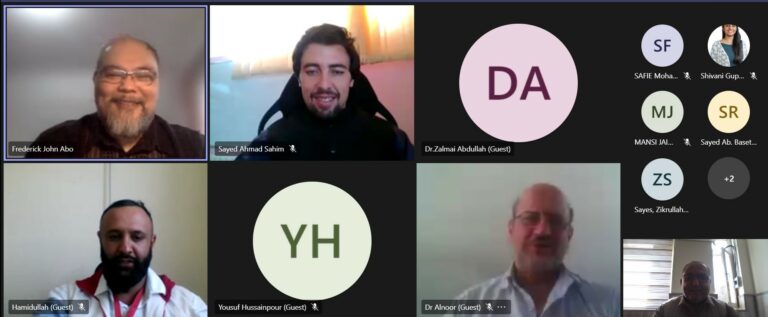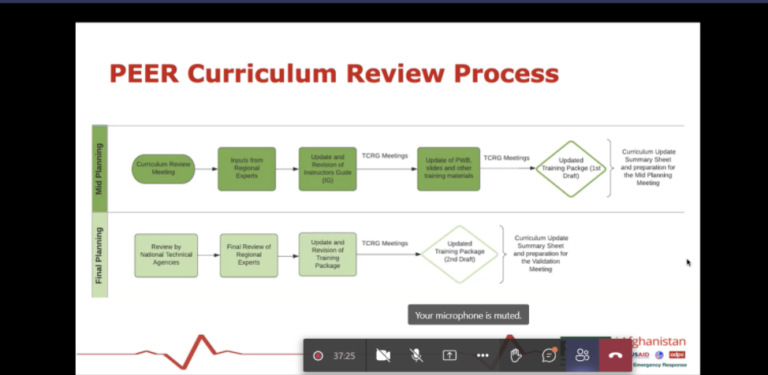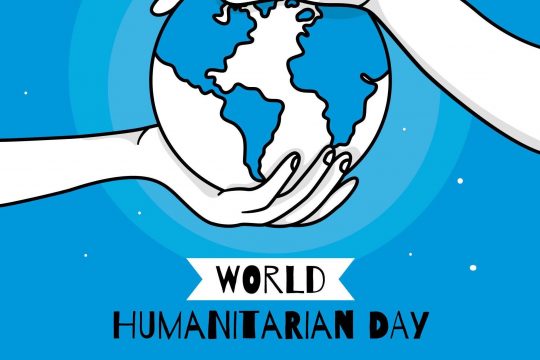PEER Afghanistan conducted the Initial Planning Meeting of the Technical Curriculum Review Group (TCRG) members on 24 June 2021 to start the review process of the PEER Curricula. The main objective of the meeting was to acquaint participants with the objectives of the curriculum review and discuss the review process highlighting the process and methodology, existing PEER training material, and the roles and responsibilities of TCRG. The PEER curriculum review will ensure a uniform, structured and standard curriculum for emergency response training for community first responders, professional rescuers, and healthcare personnel.

Officials from key nodal agencies and organizations involved in disaster and emergency management in Afghanistan specifically Afghanistan National Disaster Management Authority (ANDMA), Afghan Red Crescent Society (ARCS), Aga Khan Agency for Habitat (AKAH), International Organization for Migration (IOM), Food and Agriculture Organization (FAO), World Health Organization (WHO), including TCRG members participated in the discussion. TCRG was created in each country to conduct the technical review and revise the PEER training materials. The group is headed by a leader who acts as an overall coordinator and a technical coordinator for leading the technical review.

The meeting started with a brief introduction of the curriculum review process that was followed by an open discussion and a way forward. Various participating institutions shared their views and recommendations on the curriculum review process. It was highlighted that the curricula should address priority hazards faced by Afghanistan including industrial, transport accidents, and complex emergencies from conflict and war, and recommended developing a comprehensive curriculum supporting more country-specific challenges and operational context.
In the closing sessions, participants were appreciative of having the PEER program, a critical piece for Afghanistan’s capacity building to assist vulnerable communities during emergencies. The review process is expected to conclude in three months through extensive feedback and consultations for shaping a uniform and standardized curriculum for emergency response training in the country.


